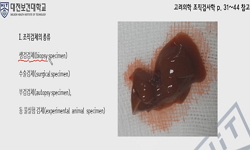Lignin, extracted from the black liquor of the pulping process, is one of abundant renewable biopolymers and is considered a potential alternative to petroleum-based compounds. Currently, research focusing on the utilization of technical lignin is inc...
http://chineseinput.net/에서 pinyin(병음)방식으로 중국어를 변환할 수 있습니다.
변환된 중국어를 복사하여 사용하시면 됩니다.
- 中文 을 입력하시려면 zhongwen을 입력하시고 space를누르시면됩니다.
- 北京 을 입력하시려면 beijing을 입력하시고 space를 누르시면 됩니다.


산성 흑액 내 리그닌 분리를 위한 필터프레스 성능 평가 = Evaluation of Filter Press Performance for Extracting Lignin from Acid-based Black Liquor
한글로보기https://www.riss.kr/link?id=A109560529
- 저자
- 발행기관
- 학술지명
- 권호사항
-
발행연도
2025
-
작성언어
Korean
- 주제어
-
등재정보
KCI등재,SCOPUS
-
자료형태
학술저널
- 발행기관 URL
-
수록면
50-57(8쪽)
- 제공처
- 소장기관
-
0
상세조회 -
0
다운로드
부가정보
다국어 초록 (Multilingual Abstract)
These findings demonstrate the potential of the filter press dewatering process for commercial-scale lignin production.
Lignin, extracted from the black liquor of the pulping process, is one of abundant renewable biopolymers and is considered a potential alternative to petroleum-based compounds. Currently, research focusing on the utilization of technical lignin is increasing, leading to a growing demand for lignin for commercial applications. Therefore, research on efficient dehydration to obtain lignin from black liquor with a simple pretreatment process is essential. This study used fast and simple mechanical dehydration in a filter press as an alternative to efficiently isolate lignin from black liquor. An acidic black liquor was used as the feedstock, which does not require a pH adjustment process, unlike the alkaline black liquor coming out of the kraft pulping process. As a result, a high degree of lignin purity (87.2‒89.2%) can be extracted, which is comparable to technical lignin. Furthermore, the molecular weight and polydispersity of the extracted lignin are constant, regardless of whether it is washed, which supports the performance of the filter press and filter cloth used in this study to produce homogeneous lignin.
These findings demonstrate the potential of the filter press dewatering process for commercial-scale lignin production.
동일학술지(권/호) 다른 논문
-
방사선 가교 기반 하이드로겔의 제조 조건 최적화 연구 - 제 2보: 반응표면분석법을 이용한 최적 조건 탐색 -
- 한국펄프·종이공학회
- 최사랑
- 2025
- KCI등재,SCOPUS
-
초음파 전처리에 따른 리그닌 아세틸화 반응 효율 향상 평가
- 한국펄프·종이공학회
- 강나영
- 2025
- KCI등재,SCOPUS
-
Numerical Study on Outflow Unevenness in a Rectangle-tapered Distributor with Branch Pipe
- 한국펄프·종이공학회
- Wang Peng
- 2025
- KCI등재,SCOPUS
-
균사체 기반 비건 가죽 소재 개발: 제지 공정을 통한 지속 가능성 강화
- 한국펄프·종이공학회
- 최윤혁
- 2025
- KCI등재,SCOPUS




 DBpia
DBpia




